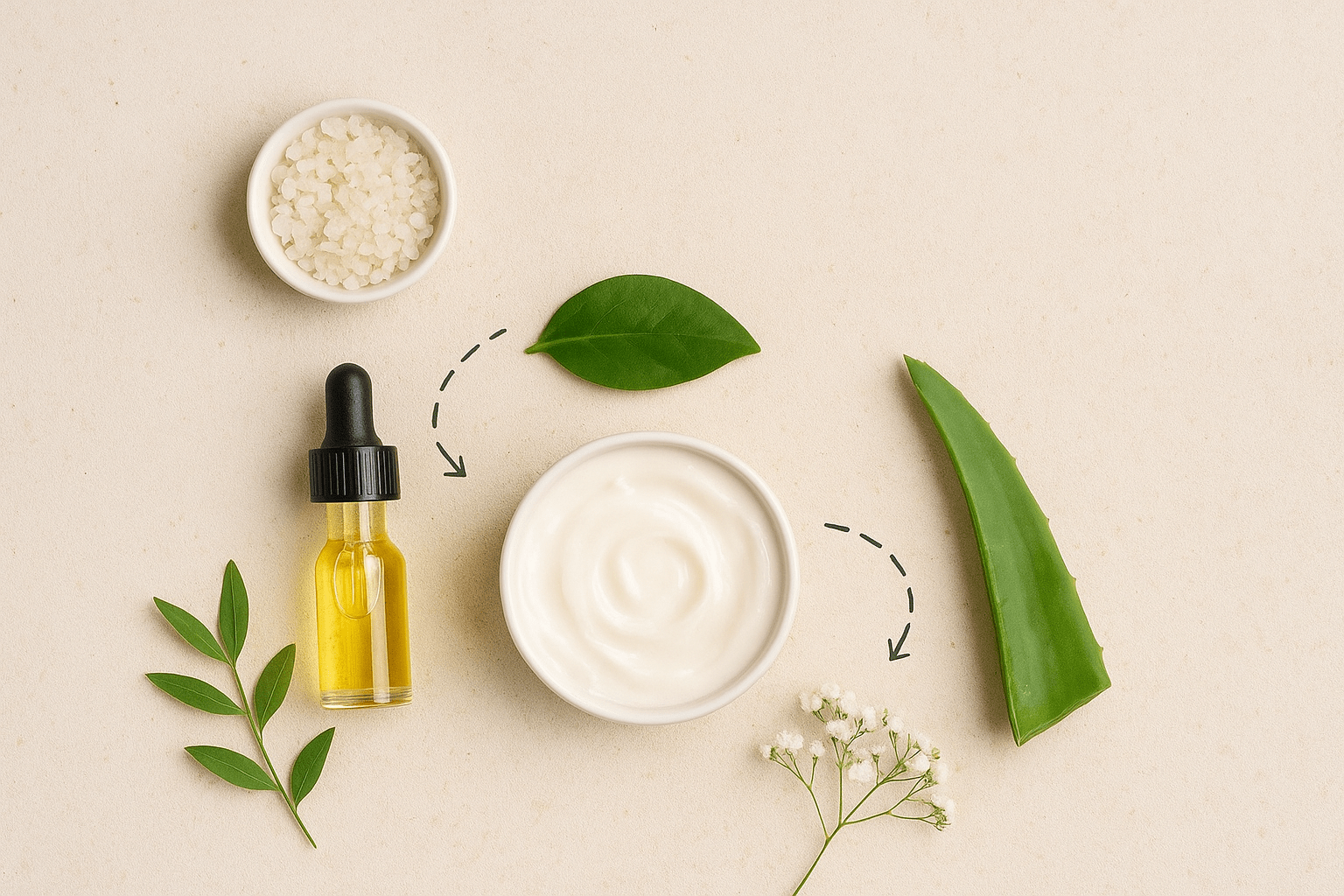Candida Antarctica Lipase B (CAL-B) is a highly specific, robust biocatalyst that offers numerous advantages in cosmetics. Thanks to its extraordinary stability, high activity in organic media and excellent regio- and enantioselectivities, it is particularly valued for the environmentally friendly production and modification of cosmetic ingredients.
The industrial production of cosmetic esters currently requires high-temperature synthesis with an acidic or basic catalyst, with temperatures of 150-240 °C being required. These high temperature conditions lead to the production of poor quality products (unsuitable for dermatological applications) which require additional purification and therefore costs. Enzymatic processes offer a compelling solution to these challenges as they operate at lower temperatures (30-70°C) and lower pressures to produce high purity, colorless and odorless products. Esters produced by biocatalysis can be considered environmentally friendly, which meets the growing consumer demand for “green” and “natural” products.
- Production of ester-based emollients
Esters such as isopropyl myristate, cetyl palmitate or caprylyl caprylate are classic emollients and skin care products in lotions, creams and make-up. CAL-B or lipase TL catalyze their synthesis by esterifying fatty acids with alcohol components under mild conditions. - Enzymatic production of biosurfactants
Biosurfactants such as glycerol monolaurate (GML) or rhamnolipids are increasingly being used in shampoos, shower gels and cleansing substances. CAL-B and lipase TL selectively promote the transfer of fatty acids to glycerol-containing compounds and thus enable the production of mildly effective, biodegradable surfactants. - Modification of natural oils and waxes
Natural oils (e.g. jojoba, argan or macadamia oil) can be biotechnologically enriched or transesterified with fatty acids via transesterification in order to optimize texture, melting point and spreadability in cosmetic formulations. Waxes (e.g. carnauba wax) can also be partially broken down and recombined to achieve customized consistencies for lip balms and solid deodorants. - Cosmetic active ingredient modification
Fatty acid ascorbyl esters (e.g. ascorbyl palmitate) are regioselectively esterified using CAL-B and serve as mild emulsifiers and antioxidants in skin care formulations with very high yields.
Detailed application examples will follow in the next articles.


